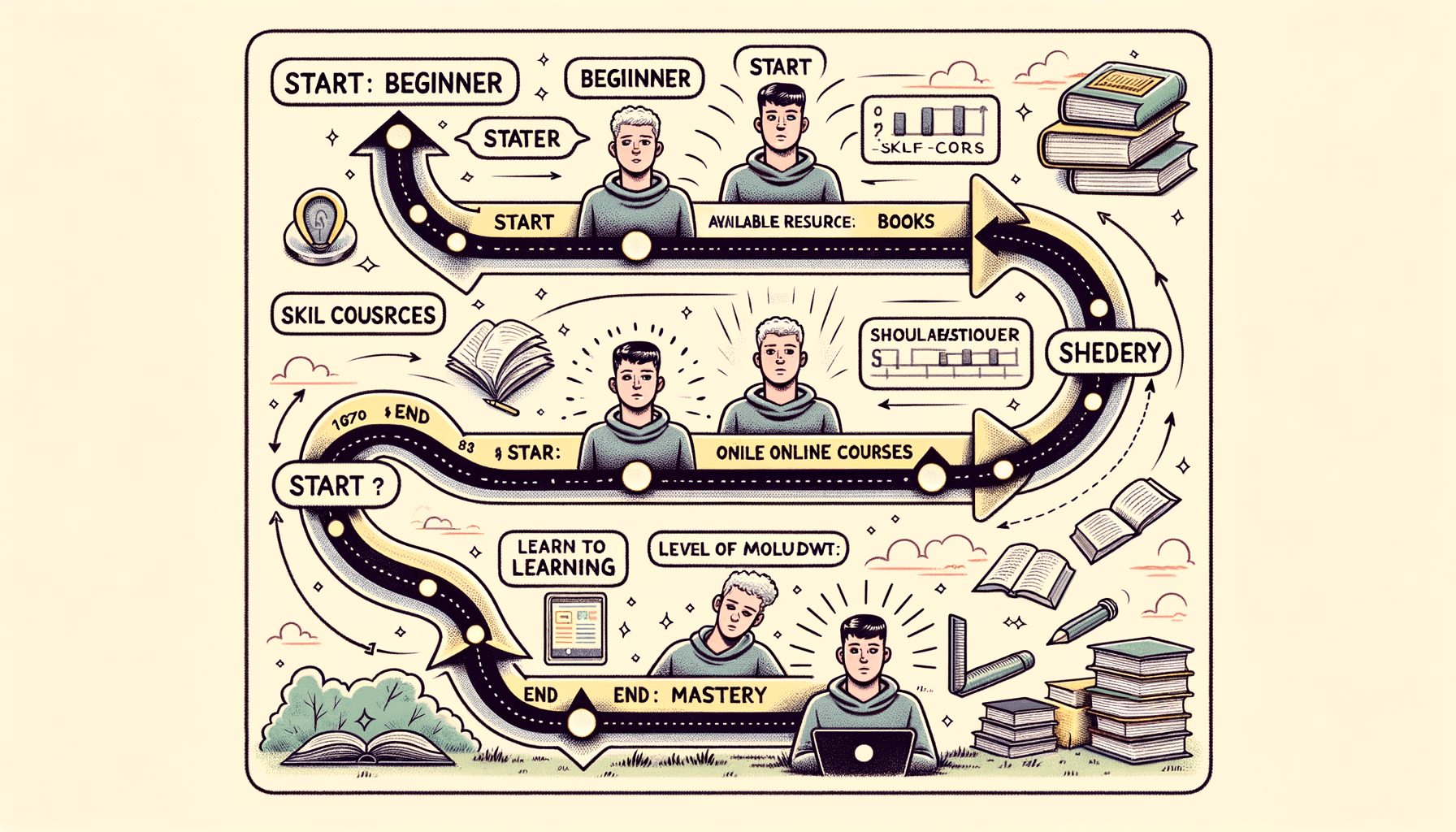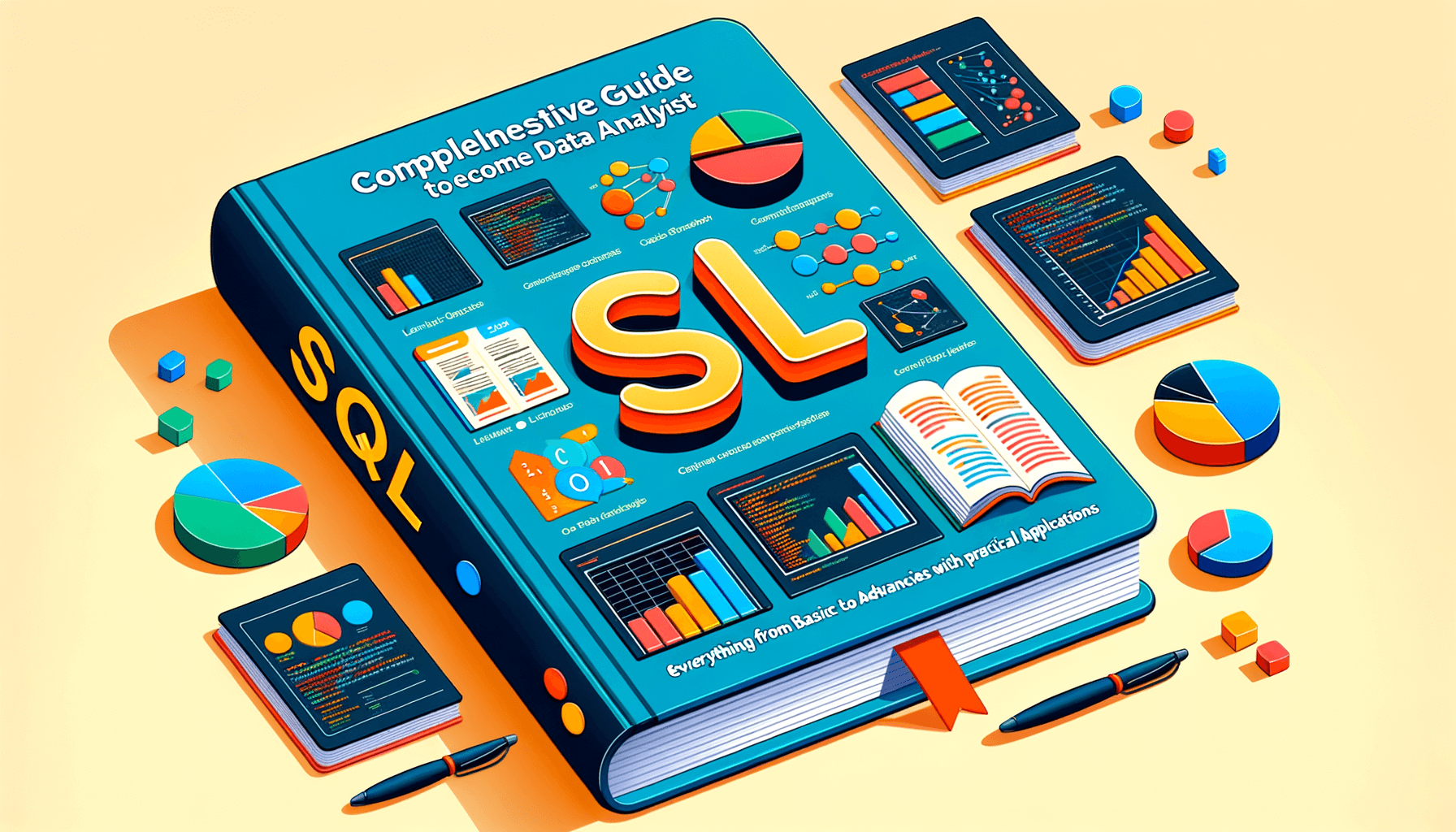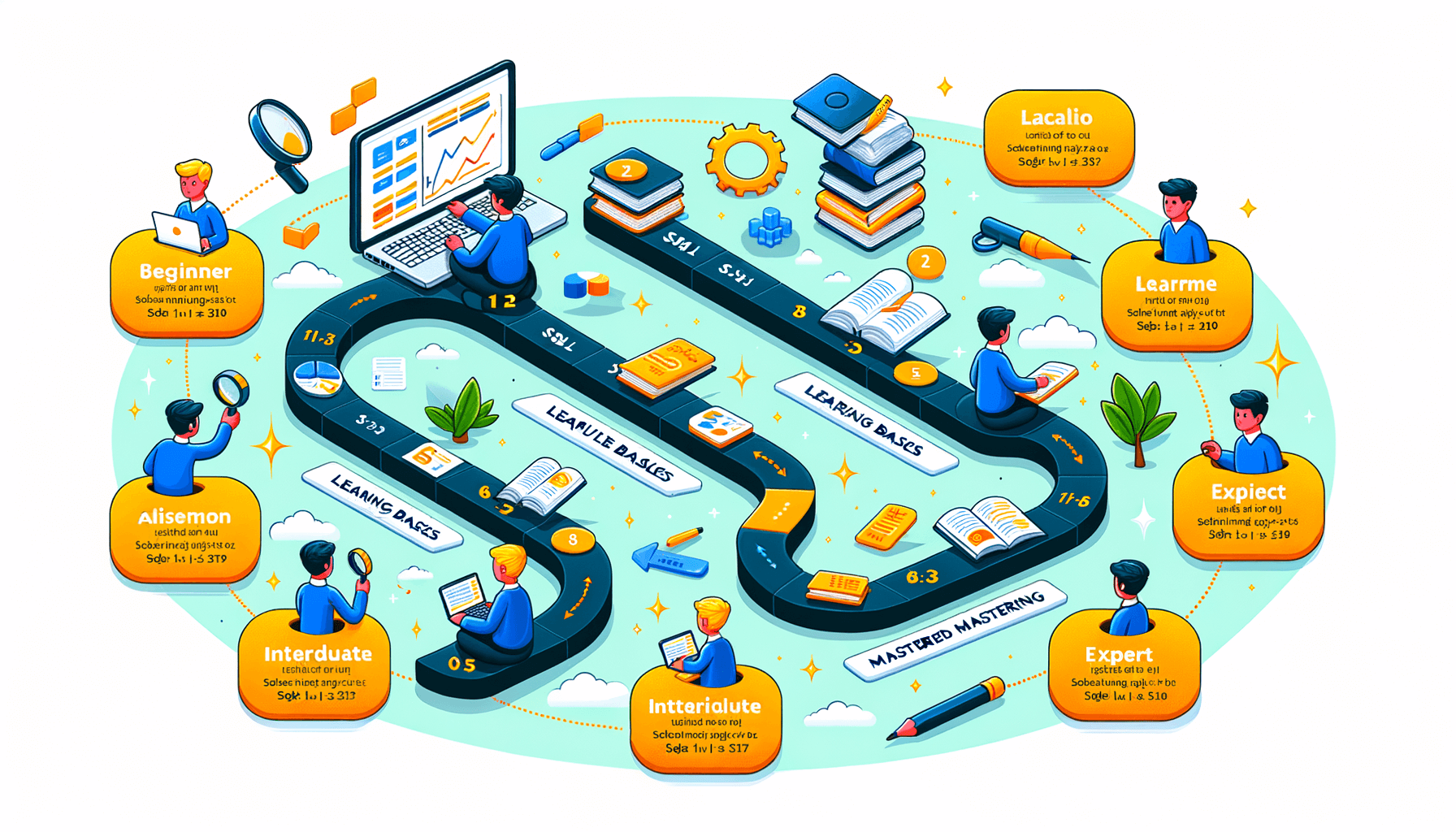A big variety of articles and resources

How Long Does It Take to Learn SQL?
 Sia Author and Instructor
Learn SQL
Sia Author and Instructor
Learn SQL
9 minute read
Learning SQL can open many doors in the tech world. Whether you're aiming for a career in data science, web development, or business intelligence, SQL is a key skill. But how long does it take to learn? The answer depends on several factors, including your prior experience with programming, the resources you use, and how much time you can commit to learning.
Key Takeaways
- Prior programming experience can speed up your SQL learning process.
- The quality and type of learning resources you choose are crucial.
- Regular practice and time commitment are essential for mastering SQL.
- Basic SQL concepts are easier and quicker to learn compared to advanced topics.
- Real-world projects and hands-on practice greatly enhance your learning experience.
Factors Influencing the Time to Learn SQL
Prior Programming Experience
Our previous experience with programming can greatly affect how quickly we learn SQL. If we already know another programming language, we might find SQL easier to pick up. This is because we are familiar with concepts like variables, loops, and functions. On the other hand, if we are new to programming, it might take us a bit longer to understand these ideas.
Learning Resources
The quality and type of learning resources we use can also impact our learning speed. High-quality tutorials, books, and courses can make learning SQL much faster and more efficient. We should look for resources that match our learning style, whether they are video tutorials, interactive exercises, or detailed books.
Time Commitment
How much time we dedicate to learning SQL each day or week is another crucial factor. If we can spend a few hours each day practicing SQL, we will likely learn it faster than if we only practice once a week. Consistent practice helps reinforce what we have learned and makes it easier to remember new concepts.
The time it takes to learn SQL varies for each person, but by considering these factors, we can create a more effective learning plan.
Basic SQL Concepts and Their Learning Curve
Understanding Databases
Before diving into SQL, it's crucial to grasp the basics of databases. Databases are organized collections of data. They help us store, retrieve, and manage information efficiently. Think of a database as a digital filing cabinet where data is stored in tables. Each table has rows and columns, similar to a spreadsheet.
SQL Syntax and Commands
Learning SQL starts with understanding its syntax and commands. SQL, or Structured Query Language, is used to communicate with databases. Mastering the basic commands like SELECT, INSERT, UPDATE, and DELETE is essential. These commands allow us to perform various operations on the data stored in the database. For instance, the SELECT command helps us retrieve specific data from one or more tables.
Data Retrieval and Manipulation
Once we know the basic commands, we can move on to data retrieval and manipulation. This involves using SQL to fetch data from the database and make changes to it. We can filter data using the WHERE clause, sort it with ORDER BY, and even group it using GROUP BY. These operations are fundamental for working with databases effectively.
Understanding these basic concepts is the first step towards becoming proficient in SQL. With practice, we can master these skills and move on to more advanced topics.
To get started, you can explore various online resources. For example, sqlskillz.com vs udemy.com: master sql basics for beginners at your own pace. No credit card required. Login or sign up to start learning.
Intermediate SQL Skills and Their Acquisition Time
Joins and Subqueries
When we move beyond the basics, we encounter joins and subqueries. These are essential for combining data from multiple tables and performing more complex queries. Mastering joins and subqueries can take a few weeks to a couple of months, depending on our prior experience and the time we dedicate to practice.
Indexing and Optimization
Indexing and optimization are crucial for improving the performance of our SQL queries. Learning how to create and use indexes effectively can significantly speed up data retrieval. This skill usually takes a few months to develop, as it requires a deep understanding of how databases work.
Stored Procedures and Functions
Stored procedures and functions allow us to encapsulate complex logic within the database. They are powerful tools for automating tasks and ensuring data integrity. Acquiring proficiency in writing and using stored procedures and functions can take several months, especially if we are new to programming.
Developing intermediate SQL skills involves a mix of theoretical knowledge and practical application. Consistent practice and real-world projects can accelerate our learning process.
Advanced SQL Proficiency and Mastery Duration
Complex Queries and Analytics
When we dive into advanced SQL, we start dealing with complex queries and analytics. These are not just simple data retrievals but involve intricate operations that require a deep understanding of SQL. Mastering these skills can take several months to years, depending on your dedication and practice.
Database Design and Normalization
Database design and normalization are crucial for creating efficient and scalable databases. This involves organizing data to reduce redundancy and improve data integrity. Learning these concepts thoroughly can be challenging but is essential for advanced SQL proficiency.
Performance Tuning and Security
Performance tuning and security are advanced topics that ensure your SQL queries run efficiently and your data remains safe. This includes optimizing queries, indexing, and implementing security measures. Gaining expertise in these areas often requires hands-on experience and continuous learning.
To truly master advanced SQL, one must engage in real-world projects and continuously seek out new challenges. This practical experience is invaluable for deepening your understanding and honing your skills.
Practical Applications of SQL in Various Industries
Data Analysis and Reporting
In many industries, SQL is a powerful tool for data analysis and reporting. We can use SQL to extract meaningful insights from large datasets. This helps businesses make informed decisions. SQL's ability to handle complex queries makes it ideal for generating detailed reports.
Web Development and Backend Systems
SQL is essential in web development and backend systems. It allows us to manage and retrieve data efficiently. For example, e-commerce websites use SQL to store product information and customer data. This ensures that users have a smooth shopping experience.
Business Intelligence and Data Warehousing
In the realm of business intelligence, SQL plays a crucial role. It helps in organizing and analyzing data stored in data warehouses. This enables companies to identify trends and patterns. Effective use of SQL in this context can lead to better strategic planning and competitive advantage.
Mastering SQL opens up numerous opportunities across various fields. Its versatility and efficiency make it a valuable skill in today's data-driven world.
Effective Strategies for Accelerating SQL Learning
Hands-On Practice
To truly grasp SQL, we need to practice regularly. Hands-on practice is crucial for understanding how SQL works in real-world scenarios. By working on small projects or exercises, we can see how SQL commands affect data. This approach helps us learn faster and remember better.
Utilizing Online Courses and Tutorials
Online courses and tutorials are excellent resources for learning SQL. Many platforms offer structured lessons that guide us from basics to advanced topics. For instance, a data analyst might benefit from an introduction to SQL course that offers hands-on SQL training with industry insights. These courses often include quizzes and projects to test our knowledge.
Engaging in Real-World Projects
Applying SQL skills in real-world projects can significantly speed up our learning process. By working on actual problems, we can understand the practical applications of SQL. This method not only reinforces our learning but also builds our confidence in using SQL for various tasks.
Engaging in real-world projects allows us to see the impact of our SQL skills in practical scenarios, making the learning process more meaningful and effective.
Want to speed up your SQL learning? Check out our website for tips and courses that can help you become a SQL expert. Our easy-to-follow lessons and expert guidance make learning SQL a breeze. Don't wait, start your journey today!
Conclusion
In summary, the time it takes to learn SQL can vary greatly depending on your background, dedication, and the resources you use. Some people might grasp the basics in a few weeks, while others might take a few months to become comfortable with more advanced queries. The key is consistent practice and real-world application. Remember, learning SQL is a journey, and every step you take brings you closer to mastering this valuable skill. Keep practicing, stay curious, and don't be afraid to seek help when needed. With time and effort, you'll find yourself becoming proficient in SQL.
Frequently Asked Questions
How much time does it generally take to learn SQL?
The time it takes to learn SQL can vary. Some people might get the basics in a few weeks, while others might take a few months. It depends on how much time you can spend learning each day.
Is prior programming experience needed to learn SQL?
No, you don't need to know programming before learning SQL. However, if you do have some experience, it might make learning SQL a bit easier.
What are the best resources for learning SQL?
There are many good resources for learning SQL, such as online courses, tutorials, and books. Websites like Khan Academy, Codecademy, and Coursera offer great courses for beginners.
Can I learn SQL on my own?
Yes, you can learn SQL on your own. There are plenty of online resources and tutorials that can help you learn at your own pace.
How important is practice when learning SQL?
Practice is very important when learning SQL. The more you practice writing queries and working with databases, the better you'll get.
What are the practical uses of SQL?
SQL is used in many fields like data analysis, web development, and business intelligence. It's a valuable skill for anyone working with data.
Related Articles

How Hard Is It to Learn SQL? A Comprehensive Guide
9 minute read

How should I learn SQL to become a data analyst?
14 minute read





